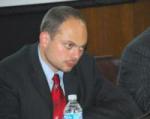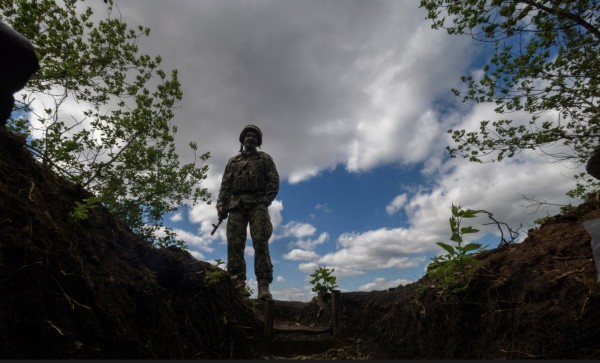
Last week, the Russian State Duma of the sixth convocation held its last plenary session, breaking up ahead of the September 18 parliamentary election. The end of this legislature was fitting: its very last act was to adopt a draconian package introduced by United Russia lawmaker Irina Yarovaya that lowered the age of criminal responsibility for some offenses—including “mass disturbances” (Kremlin speak for street demonstrations) and failure to report a crime—to fourteen, and required cellular and internet providers to help security services with deciphering all messaging applications.
Nicknamed “the mad printer” for the haste with which it rubberstamped repressive laws written in the Kremlin, the current Duma was, from the very beginning, a product of fraud and lies. The 2011 election was marked by the disqualification of a whole spectrum of opposition parties from the ballot and by the theft of some fourteen million votes in favor of Vladimir Putin’s United Russia. As the current legislature began its session, more than 100,000 people demonstrated on the streets of Moscow demanding a new—this time, free and fair—election, freedom for political prisoners, and a liberalization of the political system. “You do not represent us!” was one of the most popular slogans on Bolotnaya Square, addressed to the new lawmakers. These were Russia’s largest pro-democracy protests under Putin’s rule, and for a while it seemed that they might succeed.
But the tide turned as the Kremlin began a full-scale crackdown on civil society and the democracy movement, with the Duma obligingly approving new restrictions, limitations, and bans. Among these was a law dramatically raising fines for “violations” during street demonstrations; a law blocking unwanted websites; and a law labeling undesirable NGOs—including Memorial human rights center and Golos vote-monitoring association—as “foreign agents.” In a particularly shameful move, the Duma responded to the passage of the Magnitsky Act—a US law that imposed targeted visa sanctions on Kremlin-connected human rights abusers—with a blanket ban on US adoptions of Russian orphans. That measure was dubbed “King Herod’s Law” and the “law of the scoundrels,” and prompted mass protest rallies in Moscow. After it was passed, prominent Russian journalist Valery Panyushkin commented that he knows “of only two organizations in the world that scare their enemies by harming their own children: Hamas and the United Russia party.” At least one child, who was already paired with US adoptive parents but was prevented from going because of this law, is known to have died in a Russian orphanage.
It was not easy to be a dissenter in such a hysterical “patriotic” unanimity, so these brave individuals deserve a special mention. Eight members of the Duma—Dmitri Gudkov, Ilya Ponomarev, Valery Zubov, Sergei Petrov, Boris Reznik, Andrei Ozerov, Oleg Smolin, and Zhores Alferov—voted against“King Herod’s Law.” Four—Ponomarev (who voted against,) Gudkov, Petrov, and Zubov (who did not vote)—did not support Putin’s annexation of Crimea. Just two lawmakers—Gudkov and Ivan Grachev—joined a minute of silence for the slain opposition leader Boris Nemtsov on the first anniversary of his assassination. By then, Ponomarev was already out of the country, having been forced into exile by an arrest warrant. Earlier this month, he was stripped of his seat under yet another new law that allows the Duma to expel any member for “non-fulfillment of duties.”
“The problem is that we do not have a parliament,” wrote Dmitri Gudkov, summarizing the 6th State Duma. “There is a building on Okhotny Ryad street; there are people in it; but there is no parliament. Parliament means power; it means independence; competing opinions; and defending one’s positions. On all of these counts, the current Duma draws blanks.” There will surely come a day when the benches in the assembly hall on Okhotny Ryad will be filled by real parliamentarians chosen in a real election. But the “mad printer” of the 2011-2016 convocation already has a place in future history books as an epitome of everything that was wrong with Vladimir Putin’s Russia.



























